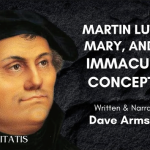I am excited that I just received my copy of DJ Moo’s new Pillar commentary on Colossians and Philemon (Eerdmans, 2008). Having just begun it, I was appreciative of his careful discussion of authorship.
He explains that the broadest issues involve language (vocabulary and style) and theology. Some rely on the problem of hapax legomena, stylistic tendencies that vary from the undisputed letters, especially syntactical variances. Ultimately, Moo points, out, the problem of language is not conclusive because such variety also occurs within the undisputed letters, we must take into account the tone of the letter (a more liturgical tone bringing with it more liturgical style), and the inclusion of the work of an amanuensis. Again, a final decision cannot really be made based on the style or language of Colossians. Moo, again, notes that topic (and the specific issues related to the false teaching) largely dictate the vocabulary and can account for the unique word choices.
The second area, theology, appears to be more critical according to Moo. One matter, which Moo considers, is the view of Paul himself in the letter. Colossians appears to view Paul as having a very special place in the mission of the gospel (Col 1.24-25). Moo is keen on pointing out this is not a unique sort of thing in that we find something strikingly similar in Romans (see 1.5, 9 and Rom. 15.14f.). I would add that Paul’s own description of himself as a master builder in 1 Cor. 3.10 seems quite a high view of his privileged position, though of course he is arguing that he is just one servant among a team of many. Again, Moo argues that the theology of the letter is contingent upon the issues raised in the letter – also a reminder that theological themes vary even in the undisputed letters.
It is no surprise that Moo champions authentic Pauline authorship. In this case, those who doubt genuine pauline participation in the writing are making the harder argument. Why? I would say this because of the personal detail found in the letter that makes it seem like the author (if it was not Paul) was fabricating many details which, apart from what would seem like intentional deception, are superfluous. Moo, finding it hard to accept the argument that early readers would have recognized this as a particular pseudonymous genre, claims that we have no good evidence that pseudonymous letters were acceptable AND we DO have evidence that early church leaders looked down on so-called forgeries. Additionally, Moo finds it hard to believe that such a letter with ‘a high moral tone, an emphasis on the importance of truthfulness, and a prohibition of lying’ could be seen to be compatible with ‘an intent to deceive about authorship’ (p. 40).
In the end, and this is me (Nijay) speaking, I think that we cannot label any books of the Pauline corpus as pseudo-pauline or deutero-pauline. The reason for this is simply because we do not have enough literary and/or historical evidence to make such a firm claim. The most confident historical claim that we can make, with the evidence we have now and in our time, is a label of ‘uncertainty with regard to authorship’. Some people think the argument ‘innocent until proven guilty’ does not work for historical interpretation. Why not? Again, it is a matter of working with the evidence we have and also taking into account the fact that, in many instances in the past, truth is often stranger than fiction. If we can find a way to explain the theology, style, and vocabulary of a letter while still accepting the person wrote it who did and that we have no contemporaries who deny such a claim, on what basis can we gainsay such evidence? So much of the argumentation against Pauline authorship, especially of 2 Thessalonians and Colossians, is based on speculation that is meant to fit some of the facts (like ostensible historical implausibilities) and to deny others (such as Paul really being ‘in chains’ at the time of writing as in Ephesians). Those who argue for authenticity are working with all the real evidence we have, taking the real claims (like sender as sender) seriously, and trying to hypothesize a situation that fits this scenario.
In the end, Moo’s arguments are representative of many evangelicals who, with thoughtful reflection and scholarly circumspection, uphold genuine authorship because there just is not enough evidence to the contrary. For many, it just comes down to how many little problems make up enough of a big problem to tip the scales. For me, the scales are not tipped in the case of either Ephesians or Colossians. That is not because I feel very comfortable with labelling them in a category that fits Romans and Galatians. If a nay-sayer makes the argument, ‘all things being equal’, the evidence weighs on the side of inauthenticity. I would respond – all things are not equal! That is the problem! We don’t know enough the make a negative decision, so we have to go with what we got!















